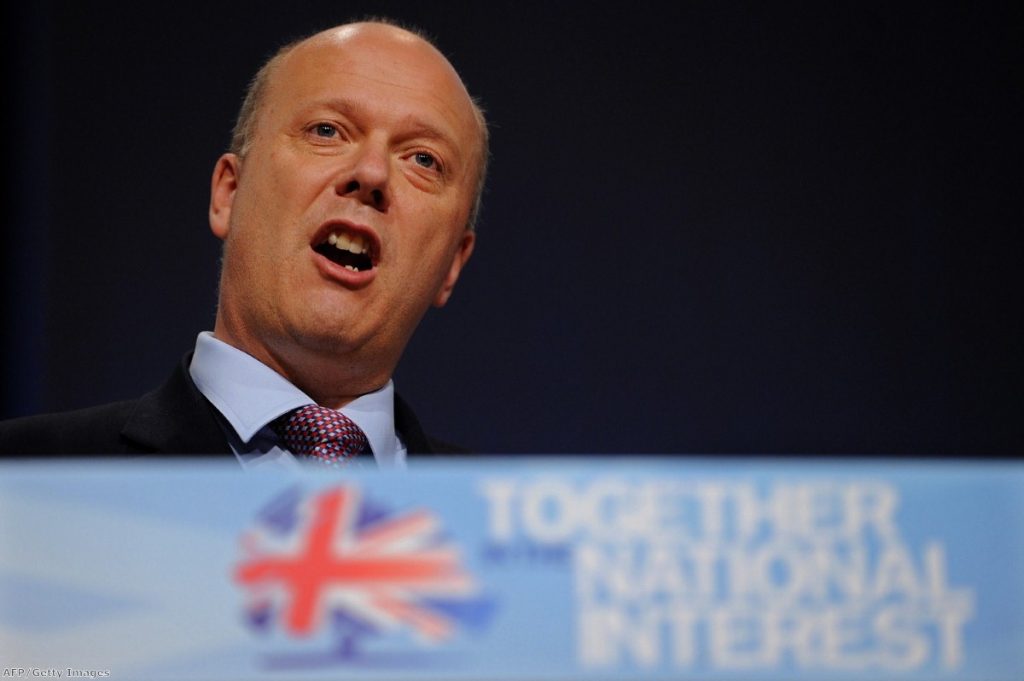Report card: MPs lay out Grayling’s failures ahead of election
The full scale of the crisis in prisons was laid bare by MPs today, when the justice committee published a devastating appraisal of the performance of the Ministry of Justice (MoJ) under Chris Grayling.
MPs found prison safety was significantly reduced and that government policy had put "decency, security and programmes of rehabilitation" at risk.
"Prison has been treated for too long as a 'free good'. Failing to evaluate its cost effectiveness is fiscally irresponsible, particularly in the context of reduced public funding," committee chair Alan Beith said.
"We need to get away from arguments about which party is hard or soft on crime, and have a political and media debate which focuses on the three things which people care about: evidence of what works, public safety, and the effective use of taxpayers' money."


The damning report will likely be the last major assessment of the prison estate before the election and serves as a final blow to the justice secretary in what is widely considered a disastrous stint in charge of prisons.
The committee reiterated the criticisms of several other experts, including the chief inspector of prisons and independent penal reform groups, and found that the prison estate had been put at risk by the decision to increase the number of inmates while cutting the number of staff.
They found staffing levels had led to "severely restricted regimes" which "reduced the consistency of relationships between officers and prisoners" and in turn affected safety.
MPs concluded the Ministry of Justice (MoJ) had failed to plan adequately for the risks inherent in staffing shortages and responded sluggishly when the problems they caused became apparent.
"The committee has repeatedly emphasised the dangers of allowing the prison population to escalate and consume huge resources which could be better spent on preventing crime," Beith added.
"The public look to the criminal justice system to demonstrate that crime is taken seriously, but that means tackling and preventing crime effectively, not merely locking up more and more offenders at massive cost to the taxpayer."
The committee also found that Grayling's Incentives and Earned Privileges scheme, a get-tough-on-prisoners regime which was celebrated by the Conservative press at the time, had made a "significant contribution to the deterioration in safety".
Shadow justice secretary Sadiq Khan said: "Independent evidence is stacking up concerning the prisons crisis caused by the policies of David Cameron's government.
"This government's policies have seen jails turn into dens of violence where inmates are idling away their time in their cells instead of being on courses or working."
MPs also found low morale among prison staff and a difficulty retaining them across the prison estate.
Frances Crook, chief executive of the Howard League, a penal reform group Grayling has repeatedly singled out for criticism, commented: "The report vindicates the long-held view of the Howard League that the safety and effectiveness of prisons is being compromised by the cut in staffing numbers and a failure to address the size of the prison population.
"We absolutely need an informed public debate about the role of prison in our society and a proper understanding of the costs – both social and financial – that are associated with rising prison numbers."
Prisons minister Andrew Selous said: "Our modernisation programme has created an estate fit for purpose, and saved the taxpayer millions of pounds. Staffing levels were agreed with both prison governors and the unions at the outset and they have done an excellent job during a period when the prison population has unpredictably risen.
"This government will always have enough space for those sent to us by the courts. And we will continue to maintain the safety of the estate, including with tough new measures to crackdown on new synthetic drugs which are driving much of the increase in prisoner violence."

